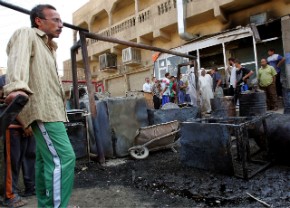Back in Iraq

In authorizing military air strikes in Iraq—he is the fourth U.S. president in a row to do so—President Obama insisted that he was using military force for a limited, “humanitarian” reason and was not dragging the country into another war in Iraq. The strikes were designed, he said, to prevent the imminent genocide of an ancient religious sect known as the Yazidis, protect Christians who were fleeing from Islamic State fighters, and defend American personnel on the ground.
Those are worthy goals, and the emergency situation offered no other practical options for realizing them. The inherent danger of the action, however, is that it is tied to a much broader—and seemingly open-ended—strategy: to protect the oil-rich regions held by the Kurdish people of northern Iraq and push back against the forces of the Islamic State of Iraq and Syria. “We are not going to let [ISIS] create a caliphate through Syria and Iraq,” the president told an interviewer. If that goal governs the use of air power, then the strikes will not be limited to humanitarian aims.
With some members of Congress calling for a more aggressive battle against ISIS, Obama needs to be very clear about the limits of this intervention. He earlier promised that the United States would not become “the Iraqi air force”—yet it has now taken on the role of the Kurdish air force. What does that lead to?




